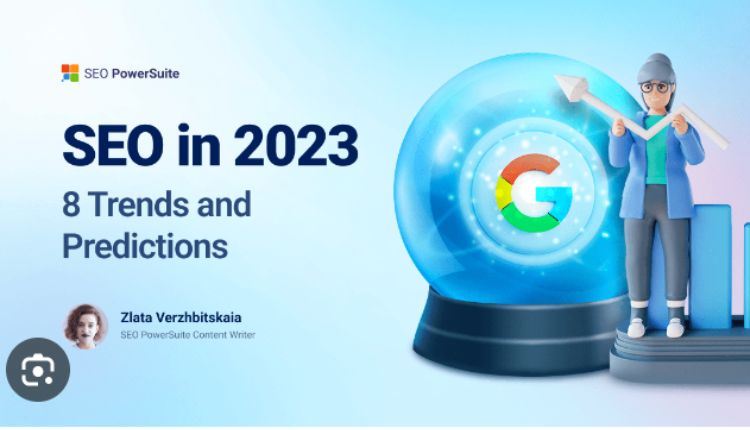Search Engine Optimisation (SEO) has evolved significantly over the years. With the advent of Google NLP (Natural Language Processing) and the growing importance of semantic SEO, the SEO landscape in 2023 is poised for dramatic changes. In this article, we’ll delve into the predictions for the future of SEO and how these advancements are reshaping the digital marketing industry.
Google NLP and Its Impact on SEO
Google NLP is revolutionising the way search engines understand and interpret user queries. In the past, SEO specialists had to rely on meticulous keyword research and comprehensive content optimisation to rank high in search results. However, with Google NLP, search engines are becoming smarter at understanding the entities and context behind user queries.
This means that in 2023 and beyond, SEO specialist Sydney businesses will need to adapt to these changes. Instead of focusing solely on keyword density, they must now create semantically relevant content that aligns with the searcher’s intent. For example, if a user searches for “best restaurants in Sydney,” Google NLP can now recognise the entities “restaurants” and “Sydney” and provide results that match the user’s specific query.
The Role of Semantic SEO
As Google NLP becomes increasingly sophisticated, semantic SEO is becoming more crucial than ever. Semantic SEO is all about creating content that is not only rich in keywords but also focuses on the contextual meaning of those keywords. For instance, instead of stuffing your content with the keyword “Sydney SEO expert,” it’s essential to naturally incorporate related terms and phrases, such as “digital marketing in Sydney” or “SEO services in Australia.”
By leveraging semantic SEO techniques, businesses can improve their website’s semantic relevance and provide more valuable information to users. This not only helps in ranking higher in search results but also enhances the overall user experience. Google NLP is increasingly favouring content that aligns with the semantic intent of the search query.
Predictions for 2023 and Beyond
Looking ahead, the future of SEO is bright and dynamic. Here are some predictions for SEO in 2023 and beyond:
- Google NLP will continue to evolve, making search engines even better at understanding user intent and context.
- Semantic SEO will become the standard practice, with businesses focusing on creating content that provides value and aligns with user needs.
- Entities and structured data will play a more significant role in search rankings, emphasising the importance of organising and marking up content.
- Voice search will continue to grow, requiring SEO specialists to optimise for conversational queries and long-tail keywords.
- Mobile optimisation will remain critical, as the majority of searches are now conducted on mobile devices.
As these trends continue to shape the SEO landscape, businesses and SEO specialist Sydney must stay adaptable and informed. Embracing these changes and focusing on creating high-quality, semantically relevant content will be key to achieving success in the ever-evolving world of SEO.
The Importance of Structured Data and Entities
In the evolving landscape of SEO, structured data and entities are becoming increasingly essential. Search engines rely on structured data to better understand the content on a webpage and present it in more meaningful ways in search results. By marking up your content with structured data, you provide search engines with clear information about the entities mentioned on your site.
For instance, if your website contains information about products, events, or local businesses, using structured data markup like Schema.org can help search engines recognise and display this data as rich snippets or knowledge panels. This not only enhances the visibility of your content but also improves the overall user experience by providing more informative search results.
The Rise of Voice Search
Another significant shift in the SEO landscape is the increasing prevalence of voice search. With the proliferation of voice-activated devices like smartphones, smart speakers, and virtual assistants, more users are now conducting searches through voice commands. This trend requires SEO specialists to adapt their strategies to cater to conversational queries and long-tail keywords.
Voice searches tend to be more natural and conversational, so optimising your content for voice search means focusing on providing concise and direct answers to common questions. Structuring your content in a way that addresses these queries can help your site appear as a featured snippet, often read aloud by voice-activated devices.
Mobile Optimisation Is Non-Negotiable
As of 2023, mobile optimisation remains a non-negotiable aspect of SEO. With the majority of searches now being conducted on mobile devices, search engines prioritise mobile-friendly websites in their rankings. Google, for example, uses mobile-first indexing, meaning it primarily uses the mobile version of a website for ranking and indexing.
To excel in mobile SEO, ensure that your website is responsive and loads quickly on mobile devices. Optimising images, using mobile-friendly design principles, and making sure your content is easily readable on smaller screens are all crucial steps to maintain and improve your site’s rankings in search results.
Conclusion
The future of SEO in 2023 and beyond is dynamic and filled with opportunities for those who adapt to the changing landscape. Embracing Google NLP, semantic SEO, structured data, and optimising for voice search and mobile devices are key strategies for staying ahead in the ever-evolving world of search engine optimisation. By staying informed and proactive, businesses and SEO specialists in Sydney and beyond can continue to thrive in the digital realm.
